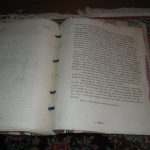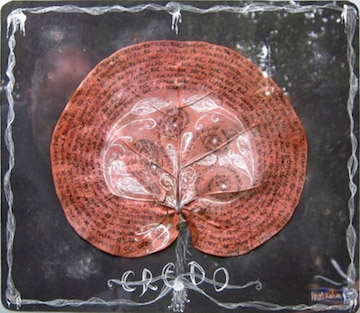This is the title of the novel my father wrote in 1944-45 while we were interned in the Satara Internment and Parole Camp. He wrote it in German, translated into English and then I retranslated it into English again as Stations of Loss. It is typewritten and bound with fabric.


Synopsis
A young Jewish doctor, engaged in important neurological research in 1933 Berlin is arrested and imprisoned by the Nazis. His mentor is able to obtain his release but political pressures and the professional jealousy of his colleagues place his life and his work in danger. He flees to Italy, where news reaches him that his Aryan girlfriend, with whom he spent many hours playing the violin to her piano, has been pilloried by the Nazis for her association with a Jew and has committed suicide and that his mentor and another friend have been harmed because of their association with him.
Wracked by guilt, disturbed by a hatred for the Nazis, he suffers a breakdown and is given refuge by an Italian medical family in Venice. Later, he arrives in Rome, hoping to resume his research but the director of the Institute does not believe he is whom he claims to be. Fragile and in despair, he wanders the Italian countryside playing his violin. This brings him to Naples, where a café owner, also a pianist, sees the violinist as an answer to his failing business. His instincts are correct, the café attracts growing crowds, but this success fails to lighten the violinist/doctor’s emptiness and unresolved hatred. The café owner feels his own piano playing is no longer good enough to accompany the celebrity and asks the wife of a famous revolutionary who is fighting Franco in Spain if she be his accompanist. Eventually, the two of them leave to join the woman’s husband in Spain where the doctor finds his redemption in blowing up enemy tanks. He loses his legs in a battle and dies.

